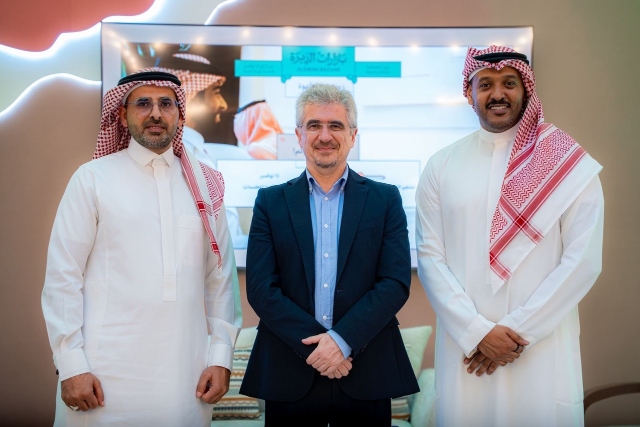Fabrizio Polojaz, president of the Associazione Caffè Trieste and owner of the Primo Aroma roasting company, took part, as the Italian coffee ambassador selected by the
Guida dei Caffè e delle Torrefazioni d’Italia, in two days of meetings for the Week of Italian Cuisine in the World, held in Jeddah and Riyadh, Saudi Arabia, at the invitation of the Italian Embassy in Jeddah. Below, we read about his experience.
Italian espresso and Arabic coffee: a cultural and culinary dialogue between Italy and Saudi Arabia by Fabrizio Polojaz
Polojaz: “On the occasion of the Week of Italian Cuisine in the World, I participated as an Italian Coffee Ambassador, selected by the Guida dei Caffè e delle Torrefazioni d’Italia, in two days of meetings and events dedicated to coffee culture, within the broader Italian Coffee Style promotion program.

The mission took place on November 12 and 13 in Jeddah and Riyadh, Saudi Arabia, at the invitation of the Italian Embassy in Jeddah.
This mission further expanded the scope of collaboration between the Italian Ministry of Foreign Affairs and the Trieste Coffee Association. In fact, I departed for Saudi Arabia in my current role as Vice President of the Association, just as my colleagues were engaged in a similar initiative with the ICE Office and the Italian Embassy in Ljubljana, Slovenia.

The initiative is part of the integrated promotion campaign for Made in Italy coordinated by the Ministry of Foreign Affairs and International Cooperation, and it represented an important opportunity for cultural, economic, and gastronomic dialogue between two countries with very different coffee traditions, yet both sharing a strong central role of coffee in daily life.
Now in its tenth edition, the Week of Italian Cuisine in the World is an initiative promoted by the MAECI to enhance the value of Italy’s culinary tradition on a global scale. The 2025 theme focuses on health, innovation, and culture—three pillars that also embody the value of Italian espresso, the star of numerous events held around the world.
In Jeddah, Italian espresso as a symbol of technology, tradition, and cultural dialogue
The event in Jeddah, organized in collaboration with the local association Call of Culture, offered a unique opportunity for dialogue between two very different coffee worlds: on one side, Italian espresso, a symbol of modernity and technological innovation; on the other, Arabic coffee, prepared with the traditional dallah, deeply rooted in local customs and hospitality rituals.
 The mission of Fabrizio Polojaz (image provided)
The mission of Fabrizio Polojaz (image provided)
The event took place in a prestigious setting—one of the most iconic historic palaces in Jeddah’s old city—and welcomed a large and diverse audience including industry experts, coffee enthusiasts, business professionals, and media representatives.
At the event’s opening, the Italian Ambassador to Jeddah, Dr. Roberto Cantone Costa, emphasized the strategic importance of Italian gastronomic culture as a vehicle for intercultural dialogue.
He also proudly announced the positive outcome of the technical evaluation of Italy’s nomination for UNESCO Intangible Cultural Heritage status, highlighting espresso as a central, identity-defining element of this culinary tradition.
In my presentation, titled “The Italian Coffee History and Culture”, I traced the evolution of Italian coffee, from its origins to the development of espresso culture, which today accounts for over 95 million cups consumed daily in Italy. I also introduced the educational model known as the “Four M” — Miscela (blend), Macinatura (grinding), Macchina (machine), and Mano (hand) — to illustrate how espresso represents a perfect synthesis of artisanal tradition, technological innovation, and social ritual.
The audience showed keen interest in both the technical and cultural aspects, actively participating in the Q&A session.
One of the most meaningful moments of the event was the live exchange with Arabic coffee experts, masterfully moderated by Mohammed Bakhrieba, founder of Call of Culture. This dialogue brought out both the similarities and differences between the two approaches: Arabic coffee, often spiced and served in generous quantities during ceremonial gatherings; and espresso, intense and concentrated, enjoyed in a few sips as a daily habit.
The discussion underscored how coffee can serve as a cultural bridge, rooted in mutual respect for each tradition’s identity and rituals.”
At the Riyadh Coffee Festival, Saudi coffee meets Italian espresso culture
“On November 13, I had the opportunity to participate in the Riyadh Coffee Festival, a national event that brought together key players in the Saudi coffee supply chain: local producers, roasters, baristas, industry professionals, and coffee enthusiasts.
The festival offered a wide range of activities, including tastings, hands-on workshops, brewing demonstrations, and a lively Latte Art competition.
 Saudi coffee meets Italian espresso culture (image provided)
Saudi coffee meets Italian espresso culture (image provided)
My contribution, focused on Italian espresso, was part of an international panel exploring different coffee cultures.
I presented the Italian perspective, illustrating both the sensory evaluation criteria and the cultural and economic values associated with espresso.
The audience showed particular interest in the technological evolution of Italian equipment and the commercial potential for espresso in the Saudi market.”
Italian coffee as a symbol of Made in Italy
“In both cities—Jeddah and Riyadh—Italian espresso was met with interest and appreciation, not only as a high-quality beverage, but as a true cultural symbol capable of creating connections, sparking dialogue, and opening new opportunities.
Coffee once again proved to be a universal language, able to bring together different peoples and foster the exchange of traditions.
 Fabrizio Polojaz in Saudi Arabia (image provided)
Fabrizio Polojaz in Saudi Arabia (image provided)
At the same time, the Italian presence confirmed the strategic role of espresso and espresso equipment in the trade relationship between Italy and Saudi Arabia. Authentic Italian espresso — renowned for its quality and deep connection to the values of Made in Italy — represents a key asset not only for exports, but also for building new collaborations in training, hospitality, and cultural promotion.”
Fabrizio Polojaz


Dining and Cooking